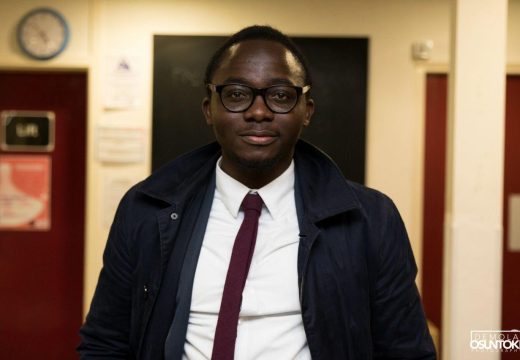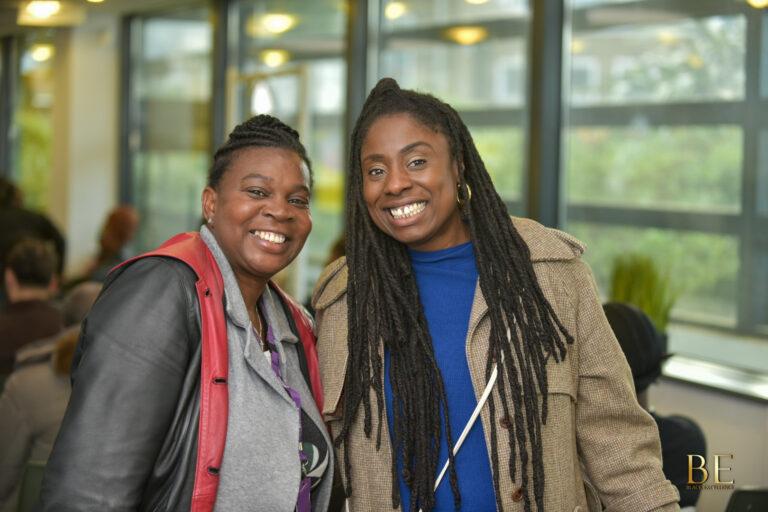Gideon Oluwafemi Adekunle is a Software Engineer. He moved from Nigeria to the UK in his teens and has enjoyed massive successes in his endeavours in the UK. We got in touch with him and had a small chat. Here is what we talked about.
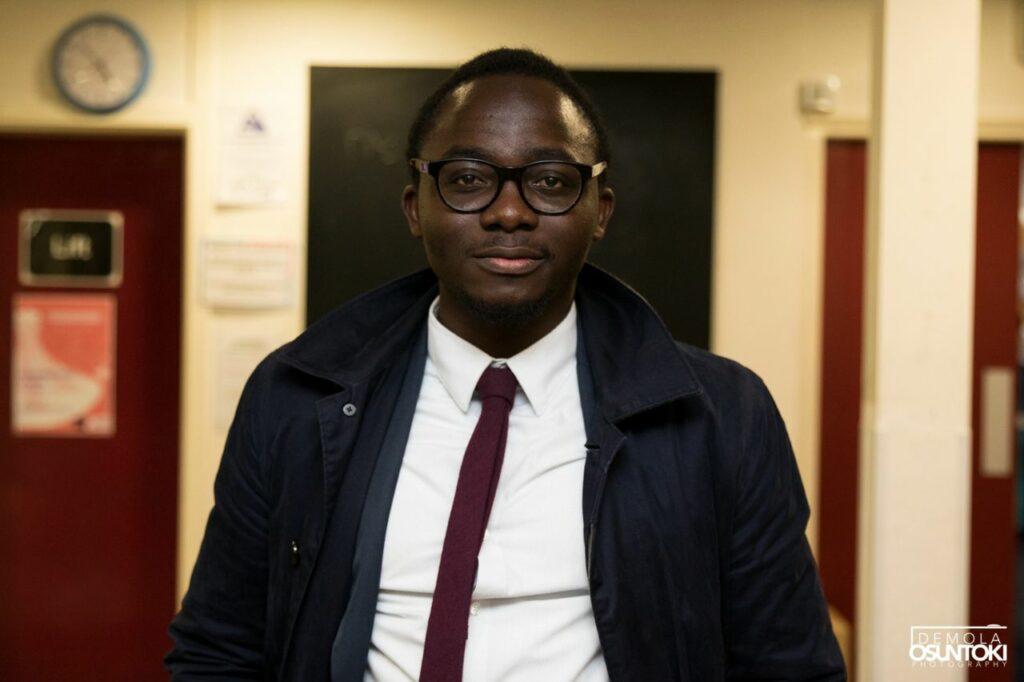
B.E.: Thank you for letting us interview you, Gideon. What is it like being a software engineer in the UK?
Gideon: Software Engineering is an excellent career to have in the country. It is gratifying. It’s also very flexible in terms of how you can work. It offers an outstanding work-life balance. During COVID, It was one of the easiest jobs to do as people were able to work from home full time, especially during the main lockdown. And coming off the lockdown, a lot of Software engineers are still working from home. Currently, I go to the office only twice a week and work three days from home. Software Engineering is the kind of job where all you need is a computer loaded with all your infrastructure. And that’s your tool. And so it’s a very, for lack of a better word, easy job.
B.E.: Do you have interests outside Software Engineering?
Gideon: Not many. Sports is a big one; I enjoy watching most sports whenever I can and keep up with the latest updates. I also like learning new languages. A big one for me is French
I enjoy the art of public speaking (not that I want to be a public speaker; more because I enjoyed it). I used to be a member of Toastmasters, but I stopped during lockdown when it became virtual.
B.E.: Public speaking?
Gideon: Yes, public speaking. Speaking has always been an interest that I have. I just think it is cool. I don’t want to be a public speaker. I just like it when you can get a chance to talk before people, and you can enrapture an audience. I once attended Toastmasters International just to sit in and just see what it was like. To receive a random topic, make sense of it and communicate to people.
B.E.: We think that is amazing. It is something special. Did you grow up in the UK?
Gideon: No, I didn’t grow up in the UK. I moved to the UK when I was 16, going 17. And at that age, I was in between rounding up childhood, until more than more towards adulthood, at the time.
B.E.: How did you adapt to your new environment?
Gideon: I wasn’t afraid of mixing with the environment and taking the opportunities that were around me. I’d done one year of pre-degree at a Nigerian university before coming to the UK and had to wait one whole year before I could start school. So that first year, I signed up for a thing at the local borough where they could send me on different activities. I got to mix with the local populace. So this is me coming off fresh from Nigeria, mixing with local youths in the UK who were not from the same background. I remember how different my culture was. I sounded different. I reacted to things differently. Everything was like a surprise to the people around me. I’ve always been a person who won’t stand out because I don’t think of myself too differently from others if I go somewhere. I just slot in easily, like adaptation. I found it easy to deal with the transition.
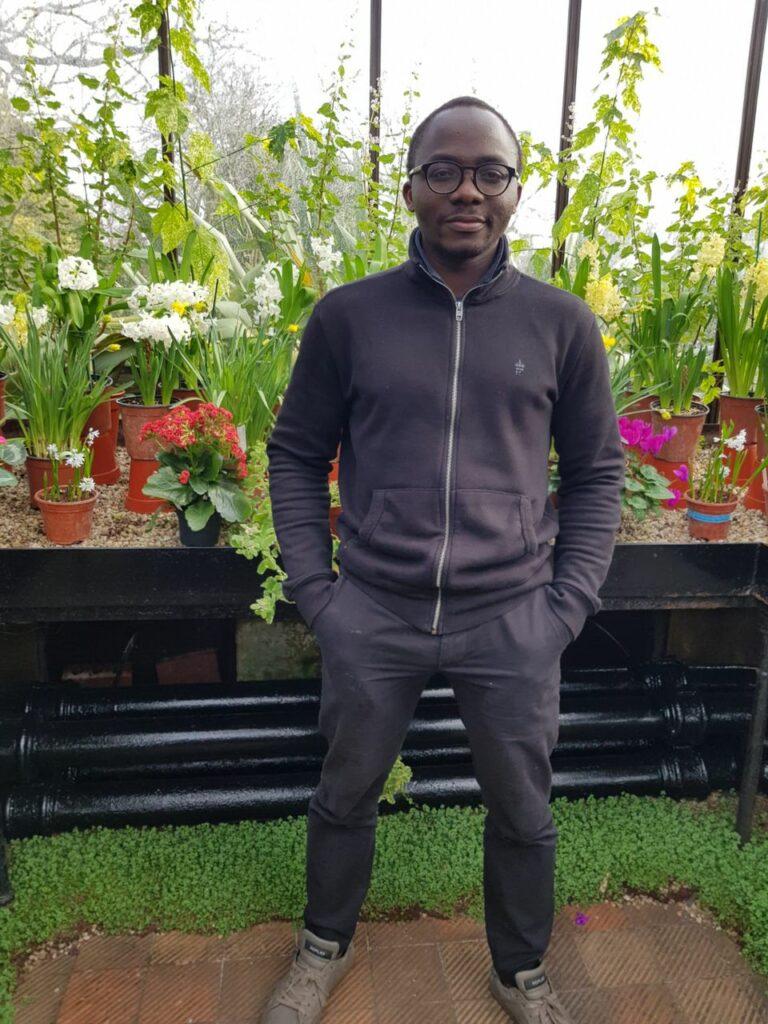
B.E.: You must be adaptable. Tell us, what was it like being black in the UK? Were you treated any differently?
Gideon: No, in that regard. I worked in so many different places before I started working formally, like white-collar jobs, blue-collar jobs, customer service in different things. Even as the only black person in some of these outfits, I wasn’t treated differently. I haven’t felt that different.
Maybe a couple of times, very few and far between, more of the earlier days, I think it was when I was at university with the people in the car. Someone would just yell out something, you know, and whatever they yelled out was not something pleasant. They would be driving, and then they would be gone. I struggle to remember those times.
Of course, some people have had different experiences, maybe based on where they live. I don’t live among the white populace in Londo. I live in a blacker area, but I did go to school with whites in Loughborough University, which is in the Midlands.
And it is not because I try to fit in. I don’t like what a white British person would traditionally like; I don’t pretend. I don’t go, “Oh, I like that stuff,” when I don’t. Because no! I don’t like it. I let them know what I like. And we talk about the things that I like. I showed them pictures of African food, how the food is prepared, and they’ll show me and tell me about their food. I still do not know a lot about their food. I hardly eat it. I have to ask them what they need basically. I’m always open and willing. I’m always happy to converse. So I know that my blackness has never been non-obvious to them. I have not been discriminated against at work or school.
B.E.: Can you tell us about your experience with the Black Lives Matter period?
Gideon: I think the Black Lives Matter movement was interesting for me. I wouldn’t necessarily describe myself as an activist. As much as we are black people, we live in different countries and are treated differently from black people in other countries. I learned that from the conversations. A UK black person’s experience is not the same as a US black person’s experience. What struck me in BLM was how some people jumped on the bandwagon without understanding it. How can we progress if people do not do their homework? We are looking for a resolution where we as a race can move forward as a whole. It is easier to do that if the vision is not lumped together with other things.
B.E.: What makes you proud to be black?
Gideon: I am proud of being black because one, I love the black history, I love the things that we stand for; perseverance, hard work, family-I love these. I see the value of family out in the country. Most of the parents have to go through untold difficulties and hardships just to make it easy for the children to assimilate into the system and have an easier life for themselves and their descendants. I’ve seen that, and it’s done without complaints, without, you know, any kind of inner sense of injustice, with pride in our culture and our heritage. I like the richness of African culture as well. I’m always proud of that. I love our traditional attire. It is beautiful when I wear it outside. I like being able to represent our diversity. I love the contribution that black people have made to the modern world, even though it’s not celebrated or popular, because, you know, it’s inadvertently whitewashed because of general history. Black people have contributed so much to the developed world today. Despite all the sufferings and persecution, we have faced as a race, we remain undefeated and continue to excel, consistently exceeding expectations. We bounce back in everything. And so yeah, I’m a very proud black person. I’m a very proud black man of a very proud Nigerian.
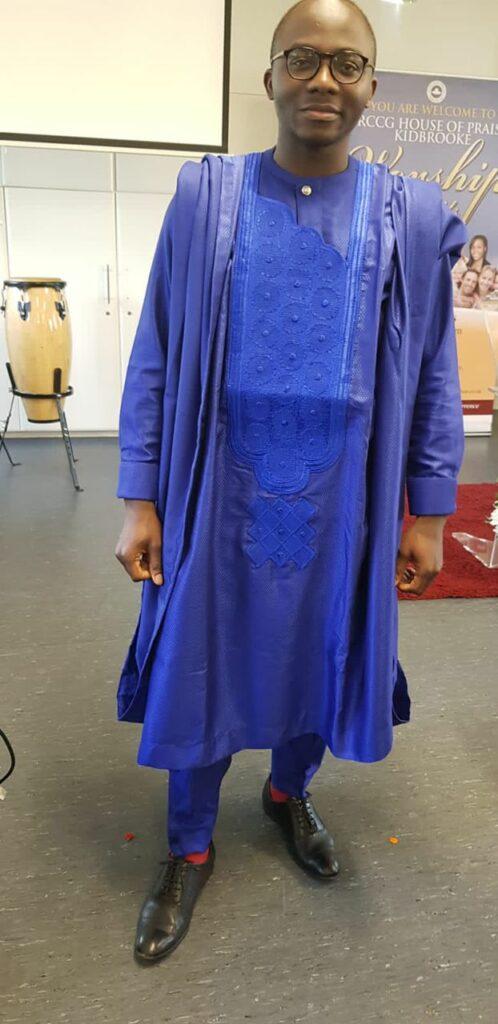
B.E.: So one is what is your favourite song right now?
Gideon: I listened to mostly gospel songs. I’m going to mention a gospel song. Capable God. I’ve been listening to it for a couple of days.
B.E.: Favorite club? And who are you backing to win the league?
Gideon: I support Arsenal. However, in terms of the Premier League, it’s not looking good for us. For the last few years, it’s been very bleak.
I think the premier league this year is quite competitive. I want to say Liverpool. I believe they want to take it by all means because last year, they didn’t do well. Yes, I’ll back Liverpool to win the Premier League.
B.E: Last question. If you were asked to address any young black person in the UK right now, what would you tell them?
Gideon: For a young person in the UK, especially those coming for school. I have a few points. The most important would be; Don’t aim for good grades alone. Getting good grades is a great aim, but your primary focus should be on becoming competent in your field of study. Whether it’s an apprenticeship, university education or informal education, whatever it is, make sure you’re deeply and consciously involved with it. Make sure that you’re actually learning the things that you have been taught. For example, when I was in university, I was learning to use Excel for a course, and the teacher was always presenting a live demonstration with the data. Our focus was on what he was visualising rather than how he was analysing the data. Because we were entranced, we completely missed out on the tricks he used. When I started working, I realised, “Oh my god, I have to use Excel as well”. And I began to wish I knew how to use those tricks. My point is this; It’s those things that matter, not the grades. The competency behind the grades matters because it’s easy for someone to get a first-class or excellent grade in an academic discipline. But to have competency means that when someone talks to you a year afterwards, you’re able to talk about what you learned with confidence. Now, this should be for anything that you are pursuing. Make sure you’re a master, not just for the sake of the grades level, but that you’re competent at the thing. When you go for interviews, your competence, not your grades, will be tested. Always choose to be competent.
I would encourage more young black people to come into software engineering. It’s a rewarding career.
B.E.: Thank you so much for your time. It was a fantastic interview. I hope you had a wonderful time as well.
Gideon: Yes, I did. Thanks for having me. And if I could add one last thing; for anyone that’s a Christian, they should commit all their plans to God and let Him lead them.

